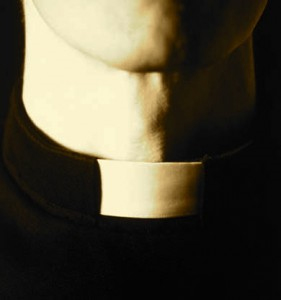
By Monsignor Charles Mangan
Priests serve Jesus Christ and his Church in a variety of ways. The vast majority of diocesan priests, at one time or another, will be assigned to a parish. Some of these priests will be pastors, while others will be parochial vicars, known often in the past as associate pastors.
Given the new Set Ablaze-inspired pastorate model being employed in the Diocese of Sioux Falls beginning in July, we ask: What are the roles of pastors and parochial vicars in pastorates?
Both the Code of Canon Law (cc. 515-552) and diocesan regulations outline the duties and rights of pastors and parochial vicars. It’s helpful to understand these basics before diving into how this will look after July 5.
The basics
A pastor is a priest who, under the authority of the diocesan bishop, exercises the pastoral care of a parish or parishes—or, come July in our diocese, a pastorate—by carrying out the functions of teaching, sanctifying and governing. He is joined in this endeavor by any parochial vicars and deacons present, as well as by the members of the pastorate.
A pastor is bound to preach the Word of God to those living in his pastorate and to instruct the faithful in the Catholic faith by way of his homilies and teaching. He is to reach out to those who are poor, suffering and dying and to be mindful of non-Catholics and those who no longer practice the Catholic faith.
The pastor ensures that the sacraments, especially the most Holy Eucharist and Sacrament of Penance, are available to his people. He invites his flock to read Sacred Scripture, study the Catechism of the Catholic Church, read Catholic spiritual books and invoke the intercession of the Blessed Virgin Mary and the saints.
The pastor also visits his families, encouraging them and, if necessary, even challenging them. Those who are sick and elderly, especially those who are close to death, occupy a special place in his concerns.
Additionally, the pastor (aided by the parish Finance Council) represents the parish in all financial matters according to Church law. If the parish has a Catholic school, the pastor has a key position in working with the administrators, faculty, parents and school board in ensuring a solid Catholic education for the students.
A parochial vicar is assigned by the bishop to cooperate with the pastor in carrying out the pastoral ministry for the pastorate. The term “parochial vicar” means that such a priest “represents” the pastor within the pastorate (a “vicar” is someone to whom responsibility and power for some task has been delegated by the one with authority, and “parochial” comes from the Latin word for a pastor).
The bishop and/or the pastor may designate certain tasks to the parochial vicar to fulfill. If no specific duties are identified, the parochial vicar participates with his pastor in whatever must be accomplished in the pastorate.
Roles within Set Ablaze
These two roles will work in concert with each other to accomplish the goals of the Set Ablaze pastoral planning initiative. In general, the pastor of each pastorate will be responsible for the administrative needs of the pastorate, while the parochial vicar(s) will be focused exclusively on ministry and discipleship activities.
This general explanation is not the end of the story though! Pastors will still most assuredly be involved in ministry and discipleship activities. In fact, it will be the job of the lay faithful to fully step into a much more active role in the life of the pastorate. As part of that role, they can help relieve pastors of some of the administrative duties and day-to-day work of the pastorate so they can be the spiritual leaders we need them to be.
Meanwhile, parochial vicars will be fully engaged in ministry that will include creating missionary disciples, visiting the sick and homebound, visiting Catholic schools, and other ministry activities that the people of the pastorate, through their pastoral planning councils and pastorate leadership teams, determine to be of importance and urgency to the spiritual life of those in their mission field.
The pastorate model is a fresh opportunity for the clergy, united in Christ-like service in the Diocese of Sioux Falls, to serve Jesus and his people. The words of St. Paul seem appropriate as this new era dawns: “If then you were raised with Christ, seek what is above, where Christ is seated at the right hand of God. Think of what is above, not of what is on earth. For you have died, and your life is hidden with Christ in God. When Christ your life appears, then you too will appear with him in glory” (Col. 3:1-4).


